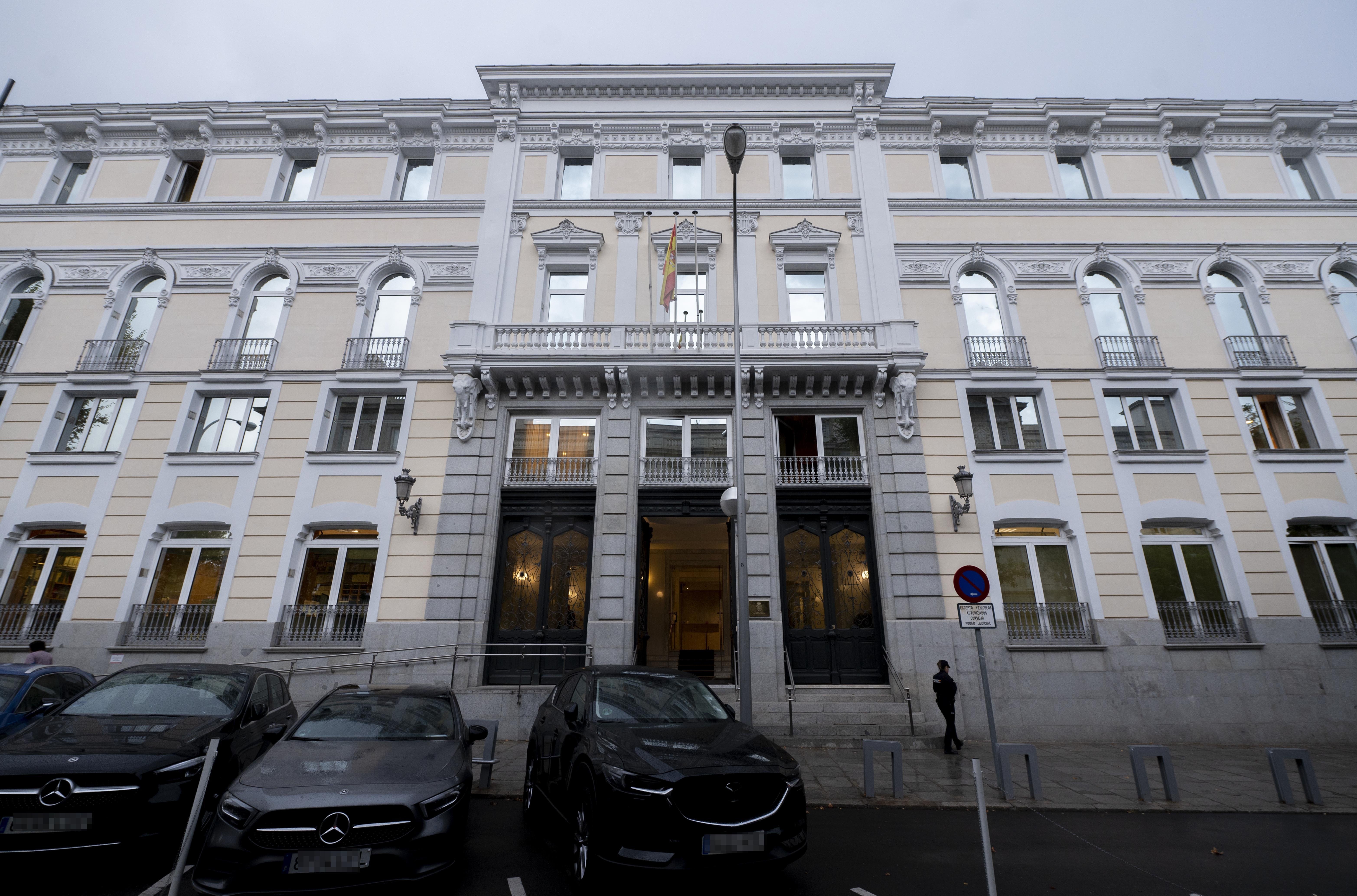The governing body of Spain's judicial power, the General Council of the Judiciary (CGPJ), has called an extraordinary plenary meeting for next Monday at 7pm to consider the proposed amnesty law that is intended to wipe out Catalan independence process prosecutions. The CGPJ substitute president, Vicente Guilarte, had no alternative but to call the meeting after eight judges belonging to the organ's conservative bloc demanded the plenary, in the face of the imminent agreement on the matter between Pedro Sánchez's Socialists and the Catalan pro-independence parties Junts and ERC. The progressive members of the judicial body have described the pressure from their colleagues as "intolerable interference" and a "coup d'état in togas".
The request for the meeting came from judges Carmen Llombart, José Antonio Ballestero, Gerardo Martínez-Tristán, Juan Manuel Fernández, Juan Martínez Moya, José María Macías, Nuria Díaz and Ángeles Carmona, who this Thursday morning registered a letter in which they requested the holding of the meeting so that the CGPJ can debate and, if appropriate, adopt an institutional declaration in relation to the possible amnesty for offences committed in the independence process in Catalonia. These are judges and lawyers appointed by the main party of the right, the People's Party (PP), whose mandates expired five years ago.
Legal mandate
In a statement, the CGPJ specified that the meeting has been called as required by law. Specifically, article 600.2 of Spain's law governing the judiciary establishes that "an extraordinary session must be held if the president deems it appropriate or if five members request it", while article 35 of the body regulations states that "in all cases, the holding of an extraordinary session will take place when it is requested in writing by five or more members of the Council, stating the subject to be discussed, and with the provision of all the documents, if any, related to the proposed agenda".
Judicial organ has moved early
In this case, the members of the judicial body have made their move prior to any political decision, with negotiations apparently very close to concluding the political deal under which current acting Spanish PM Pedro Sánchez will win the confidence of MPs to form a new government and begin a second elected term. ERC and the Socialists held press conferences this Thursday evening at which they confirmed that part of their agreement was on a law to wipe the slate clean for offences related to the Catalan independence process. However, talks on the amnesty between Junts and the Socialists continue.
The membership renewal of Spain's highest organ of judicial governance has been blocked for five years, due to the PP's refusal to budge on its wishlist for appointments in a situation in which bipartisan agreement is required to reached the necessary supermajority. Five years on, the body is currently made up of 16 of the original 21 members. The original president of the CGPJ for this now-expired term, Carlos Lesmes, resigned in protest a year ago, after the failure of efforts to get the PSOE and the PP to agree on a formula for the renewal of the judges and lawyers. His replacement in the presidency role, Rafael Mozo, has retired, thus giving way to Vicente Guilarte, the body's second substitute president.

